Search Results
Showing results 301 to 320 of 705

What Do You Know About Microbes?
Source Institutions
This is a series of quick activities/demos and pre-assessment tools that evaluate learners' current understanding of microbes and introduce them to basic information about microbes.
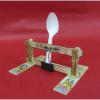
Catapult
Source Institutions
In this activity, learners build mini catapults using paint paddles and a spoon. Use this activity to introduce learners to forces and projectile motion.
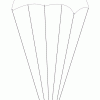
The Parachuting Egg
Source Institutions
In this activity, learners work in groups to design a parachute out of household items that keeps an egg secure when dropped from a certain height.

Energy Sources
Source Institutions
In this activity about the relationship between food and energy (page 5 of PDF), learners conduct an experiment to compare how much energy is released as heat from two different foods.
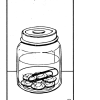
Pollution Diffusion
Source Institutions
Learners design their own experiment to investigate how pollution diffuses through ground material.

Plankton Races
Source Institutions
In this two-part activity, learners investigate buoyancy, density and surface area as well as biodiversity and the relationship between the structure and function of organisms.

Design and Build a Better Candy Bag
Source Institutions
In this activity, learners explore how product design differences can affect the success of a final product -- in this case a bag for holding candy.
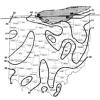
How is Coastal Temperature Influenced by the Great Lakes and the Ocean?
Source Institutions
In this two-part lesson, learners discover how large bodies of water can serve as a heat source or sink at different times and how proximity to water moderates climate along the coast.
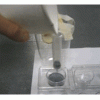
Column Chromatography
Source Institutions
In this activity, learners separate the components of Gatorade using a home-made affinity column.

Irrigation Ideas
Source Institutions
In this activity, learners explore how civil engineers solved the challenge of moving water via irrigation.

How Our Environment Affects Color Vision
Source Institutions
In this lab (Activity #1 on page), learners explore how we see color.

Personal Fan
Source Institutions
Cool off in the heat with this project! Learners use simple materials to build a fan that runs on a motor.
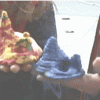
To Topo Two
Source Institutions
In this activity, two groups of learners create two separate landform models out of clay (mountains and valleys).
Leaves: Designing Leaf Arrangements on a Branch
Source Institutions
In this hands-on activity, learners investigate the functional design of leaves on a tree.
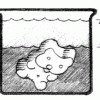
Gummy Growth
Source Institutions
In this activity related to Archimedes' Principle, learners use water displacement to compare the volume of an expanded gummy bear with a gummy bear in its original condition.
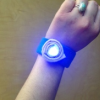
High Tech Fashion
Source Institutions
In this technology activity, learners build simple circuits, design soft circuits using conductive thread, and then sew switch-activated circuits.

The Carbon Cycle and its Role in Climate Change: Activity 2
Source Institutions
In this activity (on page 7), learners explore the meaning of a "carbon sink." Using simple props, learners and/or an educator demonstrate how plants act as carbon sinks and how greenhouse gases cause

Sound Representation: Modems Unplugged
Source Institutions
In this activity, learners listen to songs and decode hidden messages based on the same principle as a modem. As a final challenge, learners decode the binary messages in a music video.

Move That Lighthouse!
Source Institutions
In this activity, learners explore how engineers work in a team to solve problems.
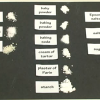
Lost Labels
Source Institutions
In this experiment, learners will conduct chemical and physical tests to identify mystery substances.
